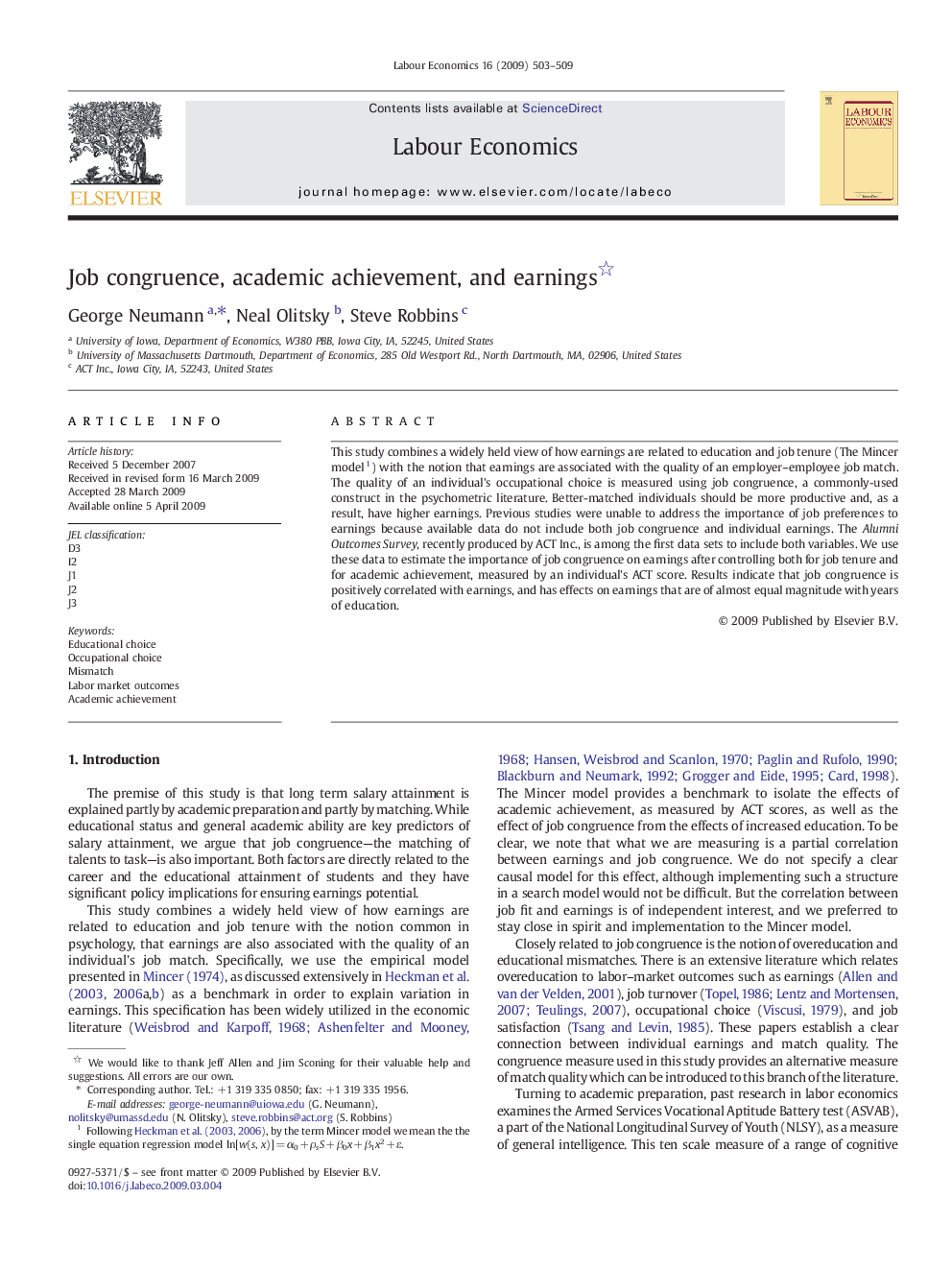| Article ID | Journal | Published Year | Pages | File Type |
|---|---|---|---|---|
| 971661 | Labour Economics | 2009 | 7 Pages |
This study combines a widely held view of how earnings are related to education and job tenure (The Mincer model1) with the notion that earnings are associated with the quality of an employer–employee job match. The quality of an individual's occupational choice is measured using job congruence, a commonly-used construct in the psychometric literature. Better-matched individuals should be more productive and, as a result, have higher earnings. Previous studies were unable to address the importance of job preferences to earnings because available data do not include both job congruence and individual earnings. The Alumni Outcomes Survey, recently produced by ACT Inc., is among the first data sets to include both variables. We use these data to estimate the importance of job congruence on earnings after controlling both for job tenure and for academic achievement, measured by an individual's ACT score. Results indicate that job congruence is positively correlated with earnings, and has effects on earnings that are of almost equal magnitude with years of education.
